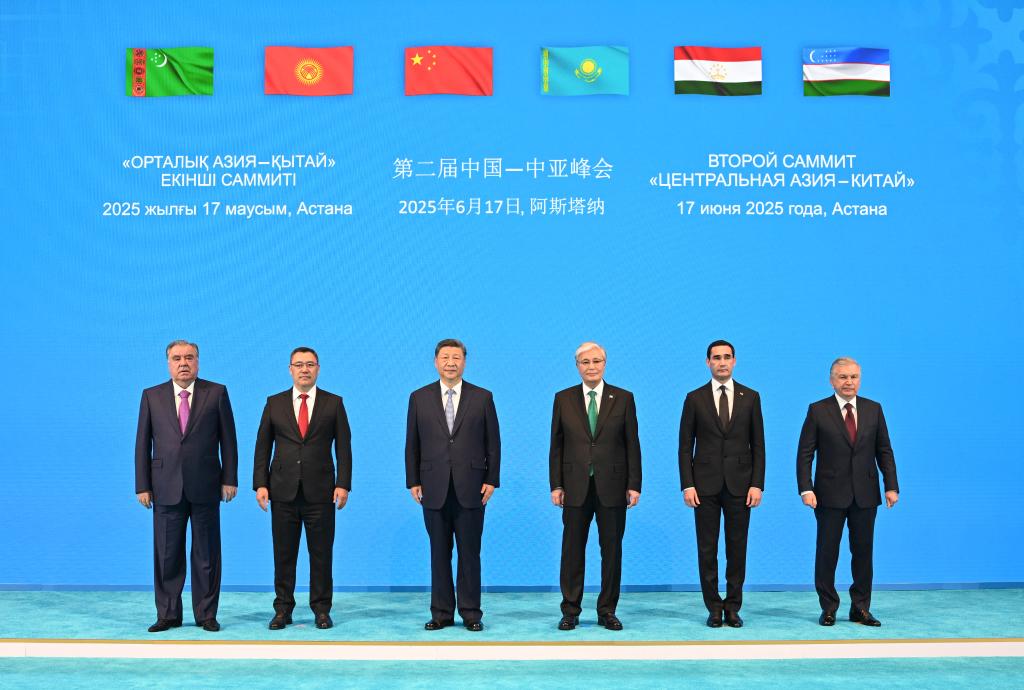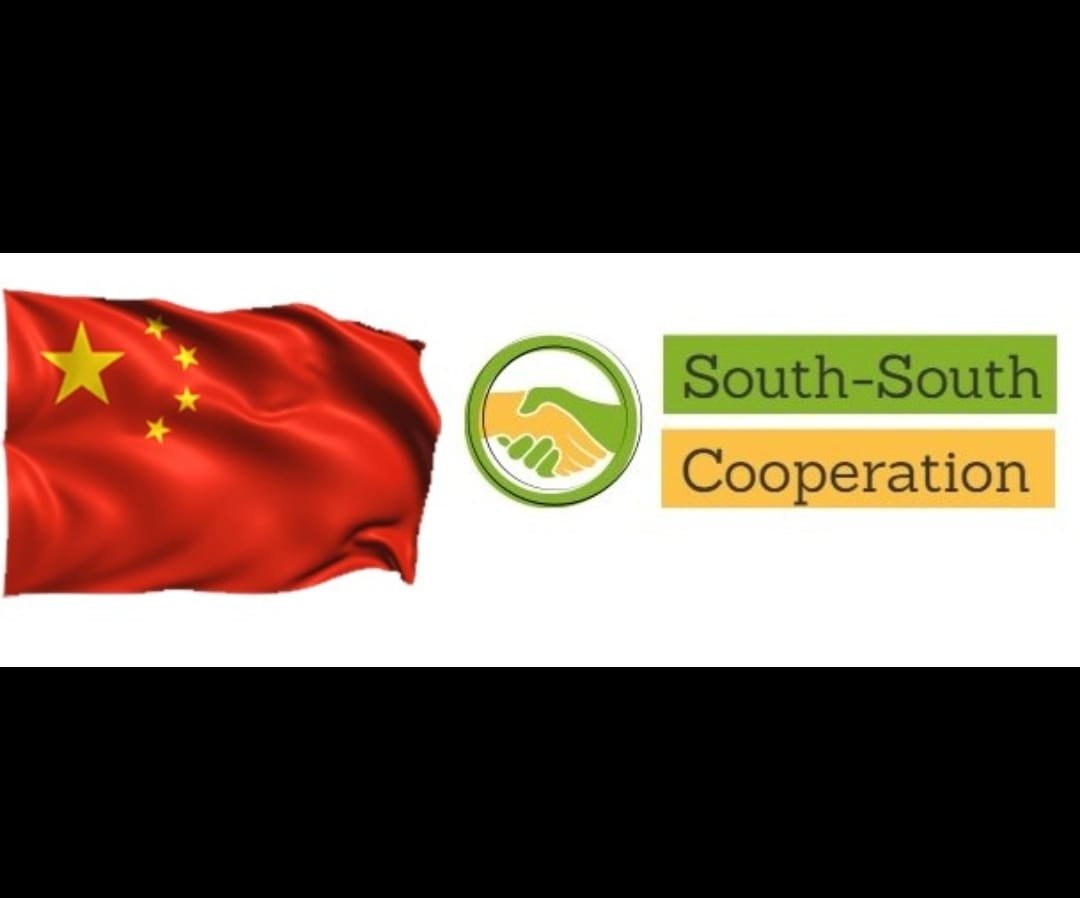Astana, June 18, 2025 – The Europe Today: Chinese President Xi Jinping on Tuesday called for deepening high-quality Belt and Road cooperation and building a China-Central Asia community with a shared future, guided by the “China-Central Asia Spirit.” He made these remarks in a keynote address at the second China-Central Asia Summit, hosted by Kazakh President Kassym-Jomart Tokayev and attended by the presidents of Kyrgyzstan, Tajikistan, Turkmenistan, and Uzbekistan.
President Xi noted that the six countries had laid the foundation for cooperation through the 2023 Xi’an Vision. “Two years on, we have further deepened and substantiated Belt and Road cooperation,” Xi said, highlighting broad progress made in trade, connectivity, and regional integration.
Enshrining Eternal Friendship
A key highlight of the summit was the signing of the Treaty on Eternal Good-Neighborliness, Friendship and Cooperation, which legally affirms the principle of lasting friendship among the six nations. Xi described the treaty as “a milestone for today and a foundation for tomorrow,” marking a new era in China’s diplomatic engagement with Central Asia.
Xi emphasized that the foundation of China-Central Asia relations rests on more than 2,000 years of friendly exchanges, three decades of diplomatic relations, and a shared commitment to openness and win-win cooperation.
The China-Central Asia Spirit—defined by mutual respect, mutual trust, mutual benefit, and mutual assistance—remains central to this partnership. Xi elaborated on its four pillars:
- Mutual Respect – All countries, regardless of size, are treated as equals, and decisions are made by consensus.
- Mutual Trust – A shared commitment to protecting sovereignty, independence, and national dignity.
- Mutual Benefit – Emphasis on shared development, prioritizing one another in trade, investment, and cooperation.
- Mutual Assistance – Solidarity in times of need and joint efforts to safeguard regional stability and development.
Xi stressed that this spirit must be upheld and carried forward for generations to come.
Five-Point Plan for Future Cooperation
To deepen collaboration, Xi proposed a five-point action plan:
1. Unity and Trust:
China reaffirmed its prioritization of Central Asia in its neighborhood diplomacy and pledged to maintain deep trust and support. Xi noted that the newly signed treaty of eternal friendship marks a pioneering legal framework for regional solidarity.
2. Optimizing Cooperation Framework:
Xi urged enhanced cooperation in trade, industrial investment, connectivity, green mining, agriculture, and personnel exchanges. He announced the creation of:
- China-Central Asia Poverty Reduction Cooperation Center
- China-Central Asia Education Exchange Cooperation Center
- China-Central Asia Desertification Prevention and Control Cooperation Center
- A Smooth Trade Cooperation Platform
He also pledged 3,000 training opportunities for Central Asian professionals over the next two years.
3. Regional Security Collaboration:
The leaders agreed to build a joint security framework to fight terrorism, extremism, and organized crime. China pledged support in law enforcement, cybersecurity, and biosecurity.
4. People-to-People Connectivity:
China proposed enhanced exchanges between legislatures, political parties, youth, women, media, and think tanks. Plans include establishing more university branches, cultural centers, and Luban Workshops in Central Asia, as well as deepening subnational cooperation.
5. Upholding Fair Global Governance:
Xi reiterated China’s commitment to defending international fairness, opposing hegemonism and protectionism, and promoting an inclusive and multipolar global order. He recalled the shared sacrifices of Chinese and Central Asian peoples during World War II, stressing the need to uphold the UN-centered international system.
Central Asian Leaders Voice Strong Support
In their remarks, the Central Asian presidents commended China’s growing role as a strategic partner and expressed strong support for the China-Central Asia cooperation model. They underscored its role in promoting regional development, connectivity, and peace.
The leaders reaffirmed their commitment to high-quality Belt and Road cooperation in fields such as industry, agriculture, new energy, infrastructure, and innovation. They also agreed to strengthen regional security collaboration and expand people-to-people ties in education, culture, and tourism.
The five leaders pledged to make the China-Central Asia mechanism a model of regional cooperation and a driver of shared prosperity. They expressed full support for President Xi’s global initiatives, including the vision of a community with a shared future for mankind.
Summit Outcomes and Future Agenda
The summit concluded with the signing of the Astana Declaration and 12 key cooperation agreements in areas such as Belt and Road development, trade facilitation, industrial growth, green mining, customs cooperation, and personnel exchange.
Additionally, over 100 sister city partnerships have now been established between China and the five Central Asian nations.
President Xi and his counterparts jointly inaugurated the four new cooperation centers and platforms announced during the summit.
All parties agreed that the third China-Central Asia Summit will be hosted by China in 2027, continuing the biennial top-level engagement that has become a cornerstone of regional diplomacy.
The second China-Central Asia Summit in Astana has not only reinforced strategic ties and mutual trust but also charted a dynamic path forward for cooperation rooted in equality, shared prosperity, and enduring friendship.





